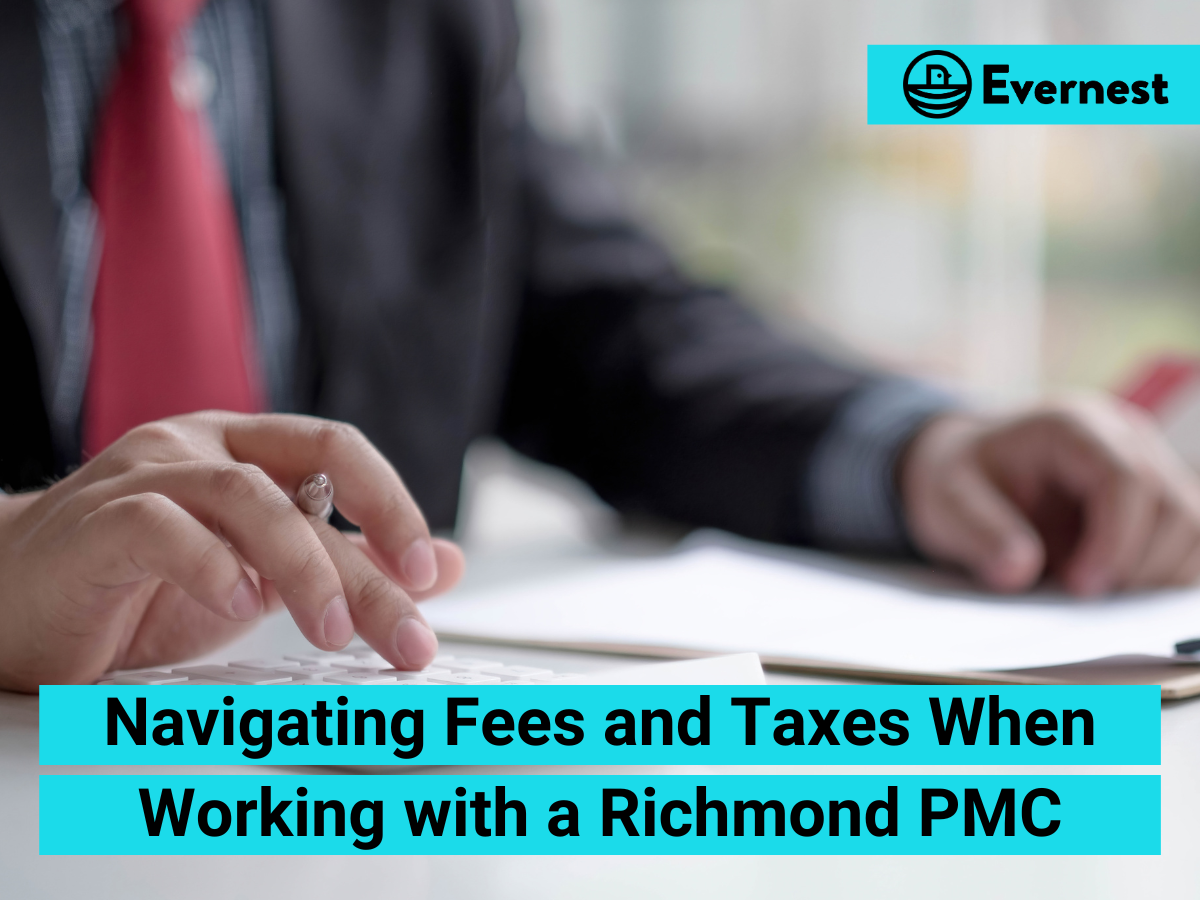Being a landlord comes with many financial responsibilities. That’s especially true if you want to find success and maximize your returns. So, from property management fees to taxes, landlords need a solid understanding of the financial aspects of renting their properties.
This article aims to guide Richmond landlords through the intricacies of navigating fees and taxes when working with a local property management company.
Let’s dive in!
Understanding Property Management Fees
Property management fees vary depending on the services provided by the company. Common types of property management fees include leasing fees, management fees, and maintenance fees. Determining your total management costs involves assessing all the fees involved and factoring them into your rental property's budget, along with considering the condition of the property and its turnover rate.
Note: When considering a few different companies, it might be a good idea to run a comprehensive price comparison.
Regarding leasing fees, some property management companies charge a flat fee for finding a resident, while others charge a percentage of the monthly rent. Additionally, there may be fees for advertising the property, conducting background checks, and preparing lease agreements.
Management fees cover the day-to-day management of the property, such as collecting rent, handling maintenance requests, and addressing resident concerns. The management fee can vary based on the size of the property, the number of units, and the level of service provided.
Maintenance fees cover the cost of repairs and upkeep for the property. Maintenance fees may be charged as a flat rate or as a percentage of the repair cost. Having a clear understanding of what maintenance services are covered by the fee will help avoid surprises when it comes to unexpected repairs.
Property management fees may be tax-deductible. Consult with a tax professional to understand the tax deductibility of management fees.
Property-Related Taxes
Property taxes are typically based on the value of the rental property and vary depending on local regulations. It's important to include property taxes in your financial planning to ensure you are prepared to fulfill this obligation.
Regarding income tax, landlords must report rental income and may be eligible for certain tax benefits.
Tracking and Reporting Expenses
Keeping detailed records of the expenses related to your rental property is essential for accurate reporting and tax purposes. It’s generally useful to have a system to track all income and expenses, saving you time and effort when tax season arrives.
Using accounting software designed for property management can streamline the process. These tools can automate tasks such as tracking rent payments, generating financial reports, and even preparing tax documents.
Tax Deductions and Credits
Common tax deductions include property management fees, property taxes, insurance premiums, repairs, and maintenance expenses. By properly documenting and itemizing these deductions, you can reduce your taxable rental income.
Another tax benefit for landlords is the Section 1031 exchange, which allows for tax deferment when selling one rental property and purchasing another. This can be a valuable strategy to manage capital gains taxes and strengthen your investment portfolio.
Additionally, landlords should explore tax credits that may be available. Tax credits directly reduce the amount of taxes owed and can provide significant financial benefits. Examples of tax credits for landlords include energy-efficient home upgrades and low-income housing tax credits.
Working with Tax Professionals: Hiring a Tax Professional
Given the complexity of tax laws and regulations, consulting with a tax professional is highly recommended for landlords. When selecting a tax professional, make sure to choose someone with experience in real estate taxation. They should be knowledgeable about local tax regulations and well-versed in landlord-specific tax considerations.
Local Tax Regulations and Variations
Tax regulations can vary from one jurisdiction to another, so being aware of the specific rules in your area is crucial. Local tax regulations can impact property tax rates, allowable deductions, and filing requirements.
Stay informed and updated on local tax regulations to ensure compliance and accurate reporting.
Deadlines and Compliance: Tax Filing Deadlines
Missing tax filing deadlines can lead to penalties and unnecessary stress. Notice that each jurisdiction may have different deadlines for property tax payments and income tax returns.
Conclusion, Seeking Professional Guidance, and Additional Resources
Navigating fees and taxes as a landlord can be complex, but with proper financial preparedness and guidance, it becomes more manageable. Seeking the expertise of a tax professional can provide invaluable support in maximizing tax benefits while ensuring compliance with local tax regulations.
Remember, being diligent in tracking expenses, understanding deductibles and credits, and staying up to date with local tax regulations will contribute to sound financial management of your rental properties. For more information and resources on fees and taxes for landlords, consult reputable real estate and tax-related websites, as well as industry-specific publications.
Looking for a Richmond property management company to help out? Contact our local team today!


